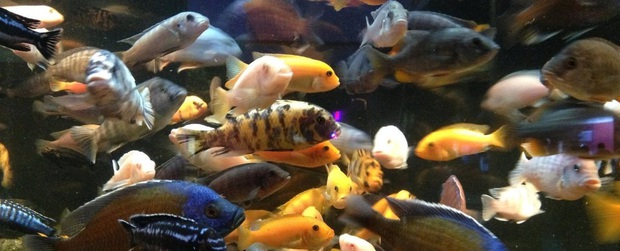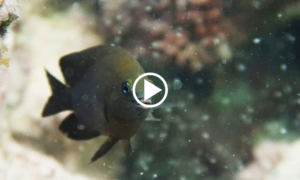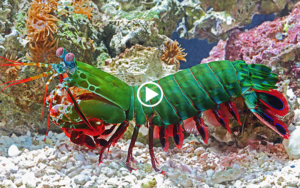Due to the mother fish’s “sleep” habit, this fish can produce generations with extremely diverse genomes, which are classified into new subspecies.
Marriage is an important matter for a person. You can love anyone, but if you choose the wrong person to marry you, the end is just a breakup sooner or later.
But this is the history of mankind. As for the animals in the following story, there is nothing wrong with choosing the wrong object for them, but even creating a finished product that surprises scientists.
The creature we want to talk about here is the cichlids – a family of fish with many species in very diverse colors. They live at the bottom of freshwater lakes in Africa and have a habit of having extremely indiscriminate “sex” with other subspecies, not just their own. And every time they do, they push more genes into the next generation, creating entirely new species of fish.
“The African lakes when they first formed were very cloudy. This may have prevented them from seeing colors, so female fish don’t have many options for choosing the right one. lover, “said Joana Meier, evolutionary biologist.
“The mating process between cichlids of different species can create a special combination of genes, forming a new species.”
In no time, “sleeping” with an individual of a different species will create a new generation of fish of a new species. In fact, currently, cichlids are one of the most diverse groups of fish on Earth with at least over 2,000 species, and experts believe the real number is more than that.
At Lake Mweru there are currently around 40 species of cichlids. But when the lake formed a million years ago, there were only cichlids from the Congo and the Zambezi. Subsequent DNA analyzes showed that new species of fish with a combination of genes from both ancestors appeared and developed extremely quickly.
“We were delighted to find a species with such ecological diversity,” says Meier. “Later generations of cichlids may adapt well to the lake’s food source. They feed on larvae, plankton or algae. Some develop into predators with large, sharp jaws.”
Many of today’s cichlid species have only evolved “newly” in about 1 million years – that sounds like a big deal, but it’s not much time for evolution. In Lake Malawi, for example, more than 800 new species have emerged from cichlids that lived 2 million years ago. In Lake Victoria there are about 700 species, which evolved 150,000 years ago.
Such rapid evolution has produced generations with extremely synchronized genomes, allowing them to mate and reproduce on their own, even as hybrids. In other words, the following generations became the new subspecies of fish.
By testing this hypothesis in the lab, experts found that when cichlids find a mate, it’s mostly the female who does, and they always choose the right species. However, when the light is low or the males are of different species but have the same color, they tend to choose the wrong one.
According to experts, this phenomenon may have happened millions of years ago, when new freshwater lakes formed. Meier believes that it is thanks to this interbreeding that their populations diversify, increasing their ability to compete in the environment.
“We believe hybridization is how a new species is formed. The Lake Mweru area has given us a great opportunity to confirm this hypothesis.”
New discovery of the world’s largest shark with “armored eyes”
Strange fish know how to tame shrimp
World’s oldest “grandfather” of whales has died
The owner turns his companion dog into “Lord of the jungle”








